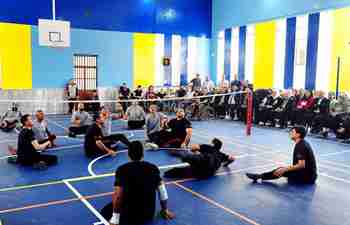BERLIN, Aug. 20 (Xinhua) -- Germans spend less time at work than most of their fellow Europeans, the RND German media group reported on Monday, citing official data.
According to a response by the German labor ministry to a Left party (Linke) parliamentary enquiry, the average amount of hours worked per week in Germany in 2017 was officially measured at 34.9 hours.
As a consequence, Germans worked less than the European Union (EU) average of 36.4 hours and many of their Southern neighbors who are sometimes stereotypically characterized in the country's tabloid media as being lazy.
The Netherlands (31.8 hours) and Denmark (33.8 hours) were the only two countries in the EU which recorded an even lower number of weekly hours than Germany.
By contrast, Poles (39.4 hours), Bulgarians (40 hours) and Greeks (40.7) all spent a substantially longer time at work each week on average. The findings were derived from on an analysis of Eurostat data by the federal labor ministry.
Speaking to Xinhua on Monday, Mark Fallak from the Bonn-based Institute of Labor Economics (IZA) explained that the observed fall in average weekly working hours in Germany partially reflected rising employment rates among women who were more likely to work part-time.
"Germany has been shifting away -- much later than Scandinavian countries or the Netherlands -- from single-earner households towards more equal division of labor, but it is still rather unlikely that both partners work full-time," Fallak said.
Although German workers hence statistically enjoyed a greater amount of leisure time than the inhabitants of all but two European countries, however, the labor ministry highlighted that their labor productivity was still 27 percentage points above the EU average.
While Luxemburg, Ireland and Denmark scored even better for efficiency, Germany was thus far ahead of relatively unproductive Eastern European labor forces in this regard.
Labor productivity is traditionally used in economics to refer to the ratio of output volume to labor inputs and is thus influenced by a range of factors including the skill-set of workers, the quality of productive infrastructure and local living standards.
Commenting on the response to the parliamentary enquiry, Left party delegate Jessica Tatti told RND that the ministerial findings provided evidence that shorter hours made labor more productive. She further argued that longer hours "heightened the risk of mistakes and accidents and made workers sick in the long-run".
"This can neither be in the interest of employees, nor be seen to be sensible from the perspective of employers," Tatti said.













